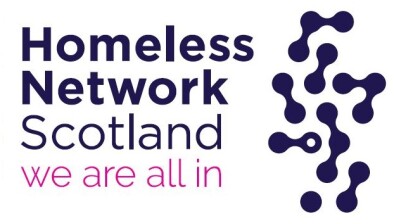David Bookbinder: Social housing rents – the nightmarish task of squaring the circle
As social landlords gear up to calculate rent proposals for the year ahead, Glasgow and West of Scotland Forum of Housing Associations director David Bookbinder outlines why the post-lockdown landscape could be the most difficult yet.

David Bookbinder
Grappling with the next rent increase is never easy, but this time round I’m not sure it could ever have been more challenging. A definite sense of ‘damned if you do…’
In the lead-up to April 2021, Covid perversely made decisions easier, as the impact of the pandemic, along with ongoing low inflation, overwhelmingly made it feel right to keep increases very modest. But now, the ‘back to reality’ factors are amassing:
- Inflation’s a lot higher than we imagined it would be just a few months ago: CPI is 4.2% and predicted to increase further. Amongst other things, this could make for some trickier salary negotiations in the sector.
- Supply chain shortages and cost increases are at an unprecedented level. One of our member associations has just had an £800,000 window replacement contract repriced to £1.5m. It has postponed the contract in the hope that this price will reduce at least part way back towards the original cost.
- On improving energy efficiency it’s the law of diminishing returns – spending, say, £10,000 per property to make them a little bit more efficient, and without knowing how much capital subsidy will be available in the coming years.
- Pressure’s growing on retrofitting renewable heating systems, again with the sector unsure about subsidy and fearing too that tenants could be left with higher fuel bills.
- Associations are increasingly filling in for declining public services. This year, in Glasgow alone, community based housing associations are spending £2.3m of rental income on removing the bulk items the council used to pick up.
And all that without mentioning the impact of Covid arrears or the pressure that new build provision can (but shouldn’t) put on a landlord’s rents.
Recent statements show the Regulator recognises this is a really testing time, and that much that associations face is beyond their control. At SFHA’s Finance Conference last week Ian Brennan reminded associations of the importance of scenario planning and sensitivity analysis, and in September Michael Cameron referred to associations ‘building and sustaining resilience’.
If anything, these statements could be seen as highlighting the importance of having enough money in the bank to do everything that’ll need to be done. But ensuring long term financial resources are adequate and doing the right thing for tenants in the shorter term is one heck of a balancing act.
The compounding effect of different sizes of increase is staggering. Take a housing association with 2,000 homes and a current rent of £4,000 pa: a 3% increase instead of 4% next April is likely to take well over £2.5m out of the business plan over 30 years.
Value for money is clearly critical, but it’s primarily tenants who must judge that. If £1 of the £80 a week rent is spent on removing mattresses a tenant could otherwise be staring at for months, they may well feel that’s worth paying for (even if they’re already meant to be paying for it through their council tax).
And ‘driving efficiencies’ will always be in associations’ minds. Just as long as that debate isn’t used to knock smaller associations, with not a shred of evidence to suggest their pro-rata costs – or their rents – are any higher than those of larger ones.
There are echoes here of how politicians are putting off difficult decisions on climate change. Accepting that every association’s circumstances are unique, it’s tempting for an association to recommend a modest, below-inflation figure this year (or any year), but is that storing up trouble for others to have to deal with in the future?
Increasingly, our sector is likely to hear tenants saying that they want a service to continue but can’t really afford to pay for it. That circle is only going to get more difficult to square.








